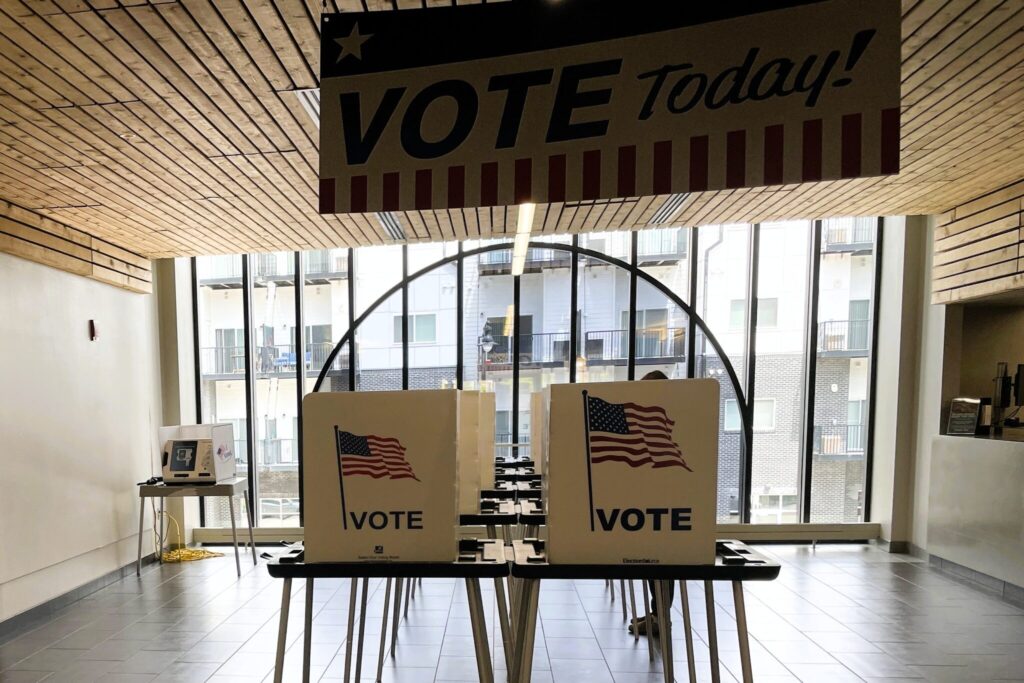PIERRE, S.D. (Joshua Haiar / South Dakota Searchlight) – South Dakota’s top election official floated potential legislation Tuesday that would allow prospective candidates to pay their way onto the ballot.
Some members of the state Board of Elections responded during their meeting in Pierre by saying they oppose the idea, but the board took no formal action.
“I’ll be honest, I’m a hard ‘no’ on this one,” said board member Austin Hoffman, who’s also a Republican candidate for state attorney general.
The proposal came from the office of Republican Secretary of State Monae Johnson. Deputy Secretary of State Thomas Deadrick walked the board through a slate of 17 “concepts” for legislation that could be introduced during the annual legislative session that starts in January.
Deadrick said some other states, including Kansas, already allow people to pay to get on a ballot. A spokesperson with the Kansas Secretary of State’s Office confirmed to South Dakota Searchlight that while independents in that state collect petition signatures to earn a ballot spot, members of a political party can pay a filing fee to get on the ballot.
The South Dakota proposal would give all candidates two options for qualifying: collecting the required number of petition signatures from registered voters, as they do now, or paying a fee to have their name printed on the ballot. Under the draft, any fees collected would go into the state’s general fund. Deadrick did not specify how much candidates would be required to pay.
“We certainly thought it was time to bring it up here and discuss it, and say, ‘What do you think of that scenario?’” Deadrick told the board.
Deadrick added that the fee option could be helpful when candidates drop out of a race at the last minute, and there’s little time to gather petition signatures before the replacement candidate deadline.
Hoffman was not swayed.
“Regardless of the reality of it, the optics of it are you are giving a pay-to-play pathway to being a politician,” he said. “To me, going out and talking to the public, and listening to the people, and getting those signatures is one of the most important parts of that process.”
Multiple other board members echoed the sentiment.
Another proposal would replace South Dakota’s petition signature formulas for candidates with new thresholds tied to the number of registered voters for partisan, independent and new-party candidates. Currently, candidates for some offices get on the ballot by turning in petition signatures from registered voters equal to a small percentage of the votes cast for governor in the last general election, with specific percentages varying by office and party status.
Hoffman “ran the numbers” and provided an example when the new formula would require fewer signatures for somebody running as a Republican and more signatures for somebody running as a Democrat.
“I just don’t see that as being fair,” Hoffman said. Other members agreed.
Deadrick acknowledged the point. He said the idea stems from the difficulty candidates have in identifying the required signature number for their jurisdiction — such as a legislative district, which often includes parts of multiple counties — under the state’s current formula.
Other bill ideas include allowing people to challenge a voter’s registration on the grounds that the voter is not a U.S. citizen, and letting the secretary of state use a federal verification system to confirm the citizenship status of people who apply to register to vote in South Dakota.
Another idea would require anyone signing any type of petition to list their voter registration address, which would have to substantially match the address on file for the signature to count.
Deadrick said the office would send board members more polished versions of the bill proposals in the near future for feedback, before final consideration.






